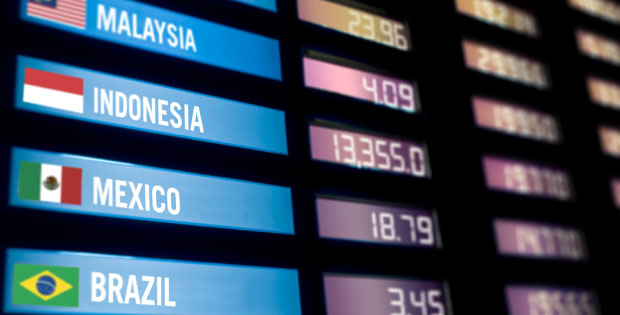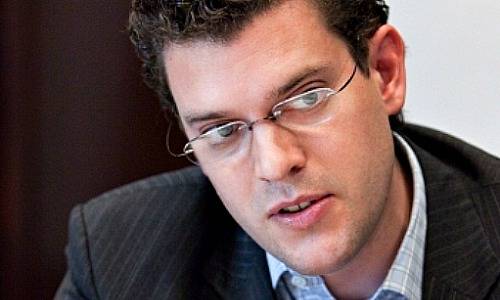Fund manager Michael Hasenstab expects Mexico’s peso to be supported by the country’s solid economy and says investors who are using the currency as a proxy bet against risks in other emerging markets could be burned.
Hasenstab, chief investment officer of Templeton Global Macro, told Reuters in a recent email that he was “positive” on the peso and said “its currently undervalued status has been driven by short-term speculation and proxy hedging strategies.”
The peso has been the third-worst performer among the world’s 36 most-traded currencies, down around 9 percent this year, behind the Argentine peso and the British pound.
Due to its position as the most liquid emerging market currency, many investors bet against the peso when global sentiment turns sour on risky assets.
“Those types of short positions in the peso are not remotely consistent with underlying macro-economic fundamentals and they can reverse quite quickly,” Hasenstab said in an emailed response to questions.
“Investors who shorted the peso to hedge other emerging market currency-risks have taken a very risky bet,” he said.
Hasenstab said he has invested in Mexican debt with a maturity of less than two years.
The peso recorded its biggest monthly loss in four years in May and is down more than 3 percent this month.
However, the number of bets against the currency registered on the Chicago exchange fell sharply since Mexico’s central bank raised its benchmark interest rate by 50 basis points in late June to 4.25 percent to defend the peso.
“We do also expect further rate hikes by the Bank of Mexico, particularly as the Fed eventually hikes U.S. rates. The Mexican central bank has been quite responsible with anchoring long term inflation expectations,” Hasenstab said.
He said there was a risk that “protectionist policies” in the United States, Mexico’s top trading partner, could hit the economy, but not to the extent that Mexico’s ability to pay its short-term debt would be harmed. Both U.S. presidential candidates have been critical of the country’s free-trade agreements.
“Decade-long progress over structural reforms, prudent fiscal policy, healthy levels of domestic demand, and an improved global market-share bolsters Mexico’s ability to weather even a more protectionist trading regime in the United States,” he said.
(Writing by Michael O’Boyle; Editing by Dan Grebler for Reuters)
About Templeton Global Macro
Templeton Global Macro has been a pioneer in unconstrained global fixed income investing for almost three decades, beginning with the launch of its flagship Templeton Global Bond Fund in 1986. The team conducts in-depth global macroeconomic analysis covering thematic topics, regional and country analysis, and interest rate, currency and sovereign credit market outlooks.
Templeton Global Macro follows a well-defined research process characterized by a regular review of investment opportunities. This process features forums scheduled throughout the month to share information on potential sources of alpha generation and to review current holdings and potential risk factors. Team members meet daily to discuss ongoing market activity, as well as political and macroeconomic events.
Sources:


